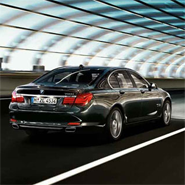
A consumer survey from November 2010 proves that BMW, Mercedes-Benz and Rolex are the most internationally desired luxury brands, based on their ability to encourage consumers to think, feel and act in a certain way. The Brand Desire study by Clear Ideas based its findings on how consumers view a brand and how it makes them feel, act and think. It found that consumers do not think of brands in one category, but instead think of a type of brand irrespective of category, country or culture. “We find that people are hard-wired to like a specific type of brand, and this pertains to every market,” said Nick Liddell, director of strategy at Clear Ideas, Surrey, England. “While marketers seem to think about brands mainly in terms of who their competitors are, consumers tend to prefer brands that do something that plays a role in their lives. “People feel a connection to brands that they have something in common with and those which mirror the ideals that they possess themselves,” he said. Delving into the study The Brand Desire study was conducted on an international basis with specific emphasis in Europe, Asia, the United States and Britain. Consumers were asked questions based around which brands they are proud to be seen with, which they think of as great, which they respect and which matters to them. The 17,000 participants were divided into six segments. Aspirational buyers, three segments of the study, who accounted for approximately 39 percent of participants, most desired luxury brands such as Louis Vuitton, Tiffany & Co., Gucci, Cartier, Chanel, Audi and BMW. It’s about the consumers, not the brand Brands are not compared to others in their category. Instead they were judged based on what consumers thoguht of them. For example, Mr. Liddell said that consumers that desired Mercedes were more likely to enjoy Rolex, rather than competitive car brand BMW. “Mercedes and Rolex commanded respect, meant something to people and were viewed as older and wiser,” Mr. Liddell said. “BMW, on the other hand, was desired by those who found themselves to be more exciting, were younger and more focused on brand image,” he said. Additionally, Gucci and Chanel were seen to be desired by different groups of people. While Gucci was more open minded, younger and more assertive, Chanel is viewed as confident, competitive, old-world and seen as marginally more sophisticated. The bottom line The brands that were the most desirable across all ages and genders were the ones that create focus and motivate people to think, feel and act differently. Although BMW, Mercedes, Cartier and Chanel are all thought of to reflect different personalities of consumers, they still hold core values and echo images that all people find desirable. Clear Ideas proposed five rules to building a desirable brand: 1. Transcending your category, since most consumers do not compare brands against competitors. 2. Be sharp and simple. The most desired brands have very distinguishable personalities. 3. Demonstrate ambition. The most popular brands in the study have a clear mindset of what they want out of consumers. 4. Appeal to the heart, hand and mind. Luxury brands especially inspire their consumers to love them, respect them and want to use them. 5. Understand the role that brands play in people’s lives. Brands are connected to people based not only on their image, but how people want to see themselves, as well. What does this mean for luxury brands? What Clear Ideas found most interesting is there were fewer luxury brands in the top numbers than estimated. This could be that while some luxury brands are able to connect with consumers, others are viewed as unapproachable or do not have the ability to motivate people. “One of the interesting things is that luxury brands are competing with a lot of non-luxury brands and image profiles that look similar in people’s minds,” Mr. Liddell said. “The interesting brands out there that consumers are connecting to could be rich sources of inspiration for luxury brands, even if they are not luxury themselves. “It is quite clear when you look at the segments of people who buy luxury brands do so not because they are aspirational, but because they reflect the ideals of success,” he said. “Luxury brands aren’t about creating aspiration and a lot of people want to see their own values as a personality basis in the brands that they are buying.” Final take Brand Desire promotion
